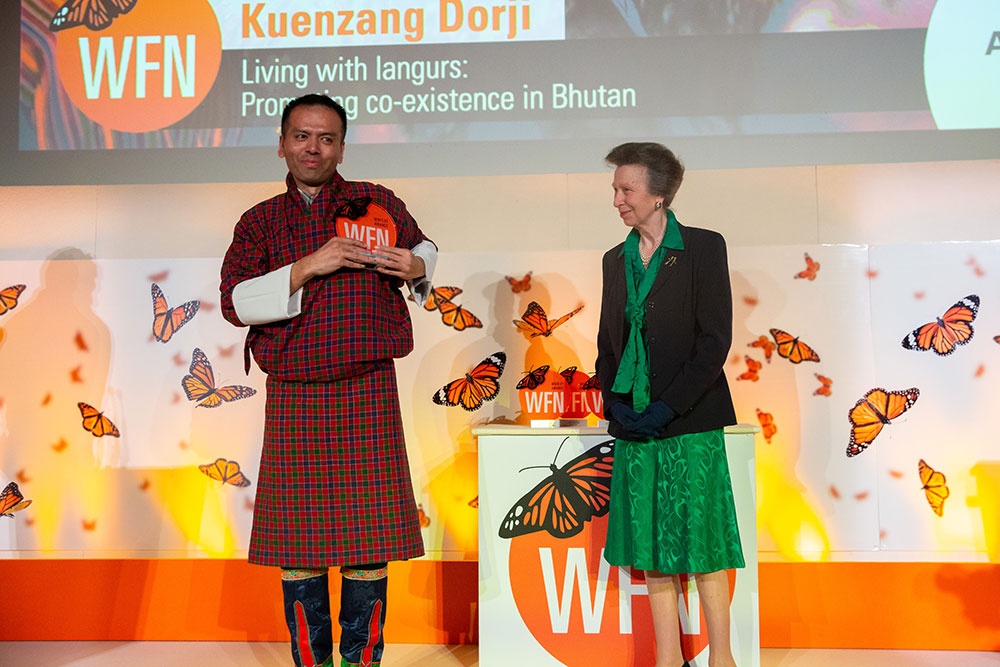RSPN’s biologist wins 2024 Whitley Award for his solutions to protect golden langur
Lhakpa Quendren
It is believed that seeing a golden langur brings good luck. For wildlife biologist, Kuenzang Dorji, who had been studying the primate in the context of human-wildlife context, it was more than luck when he was awarded the 2024 Whitley Award by the UK-based conservation charity, the Whitley Fund for Nature (WFN), on March 1 in London.
A biologist with the Royal Society for Protection of Nature, Kuenzang was recognised for protecting the endangered Gee’s golden langur and addressing the human-wildlife conflict in the country. He is one of seven conservation leader awardees worldwide dedicated to safeguarding the world’s most fragile ecosystems.

As he celebrates his 20 years of conservation journey, the 44-year-old said the recognition acknowledges his sacrifices. “Dedication often leads to recognition, revealing the true worth of one’s efforts in the light of acknowledgment. This is what I believe,” he said.
The recognition, Kuenzang said, further exemplifies Bhutan as a conservation role model.
Kuenzang has devised deterrents to prevent langurs from foraging and shield them from other dangers. He uses heatmaps to locate conflict spots, implements community interventions, installs road signs for langur safety, and places repellents near power stations to prevent electrocution.
With £50,000 from the Whitley Award funding, Kuenzang plans to halve human-langur conflict, empower women farmers, raise conservation awareness in schools and villages reaching 300 people, mitigate electrocution and collisions, and support 10 budding primatologists with research fellow awards.
“I want to revive the relationship between monkeys, people, and the forests they share,” said Kuenzang, who is focusing on “building harmony” between people and primates in his community-led project in the country.
With climate change affecting monkeys’ behavior and leading to crop raids, Kuenzang Dorji intends to train citizen scientists to gather primate data for long-term monitoring in the ecologically fragile Himalayan ranges.
“If I put myself in the shoes of the local people, I can really feel how frustrating life is in the middle of the forest,” he added.
Kuenzang is developing practical solutions to help langurs and communities in his 6,500 square kilometer project area, covering six remote dzongkhags where golden langur is found, including the Royal Manas National Park, a World Heritage Site.
The area is home to 100,000 people, and his work will primarily target Zhemgang and Trongsa, with the largest population of the primates and where human-langur interaction is most intense in Bhutan.
Traditional approaches to guarding fields, such as scarecrows and electric fences, proved futile against the monkeys’ high cognitive abilities, according to Kuenzang.
Habitat loss from economic expansion, including hydropower projects, road construction, and housing development, has pushed many golden langurs into closer contact with humans. Bhutan, home to about 2,500 Gee’s golden langur, is one of the last remaining habitats for this species, along with a small region in Western Assam, India.
The Whitley Awards, often dubbed the ‘Green Oscars,’ recognise grassroots conservation leaders for their innovative approaches to tackling various threats to nature. The prizes they receive provide essential funding to expand their initiatives and create a global impact.


